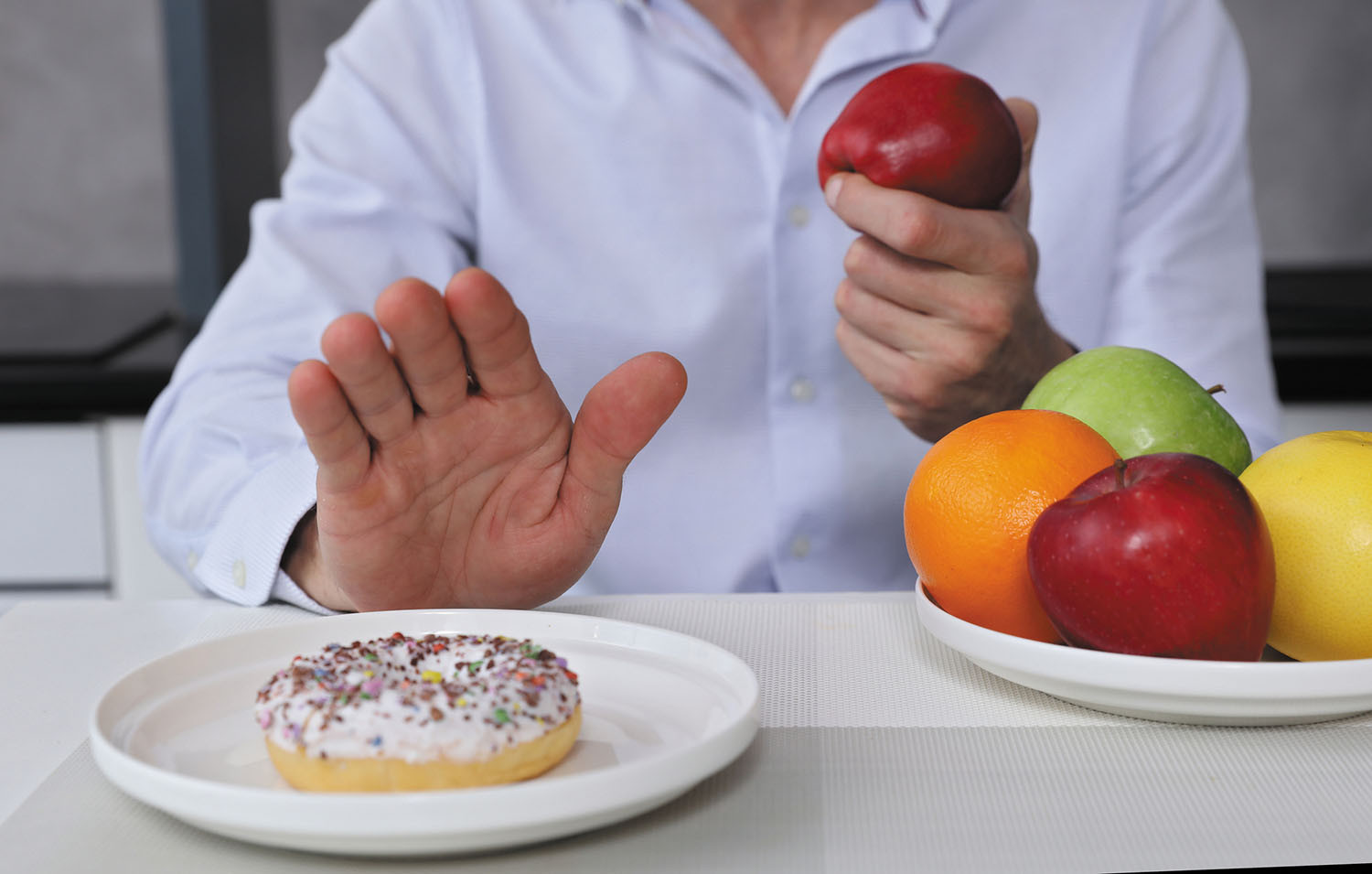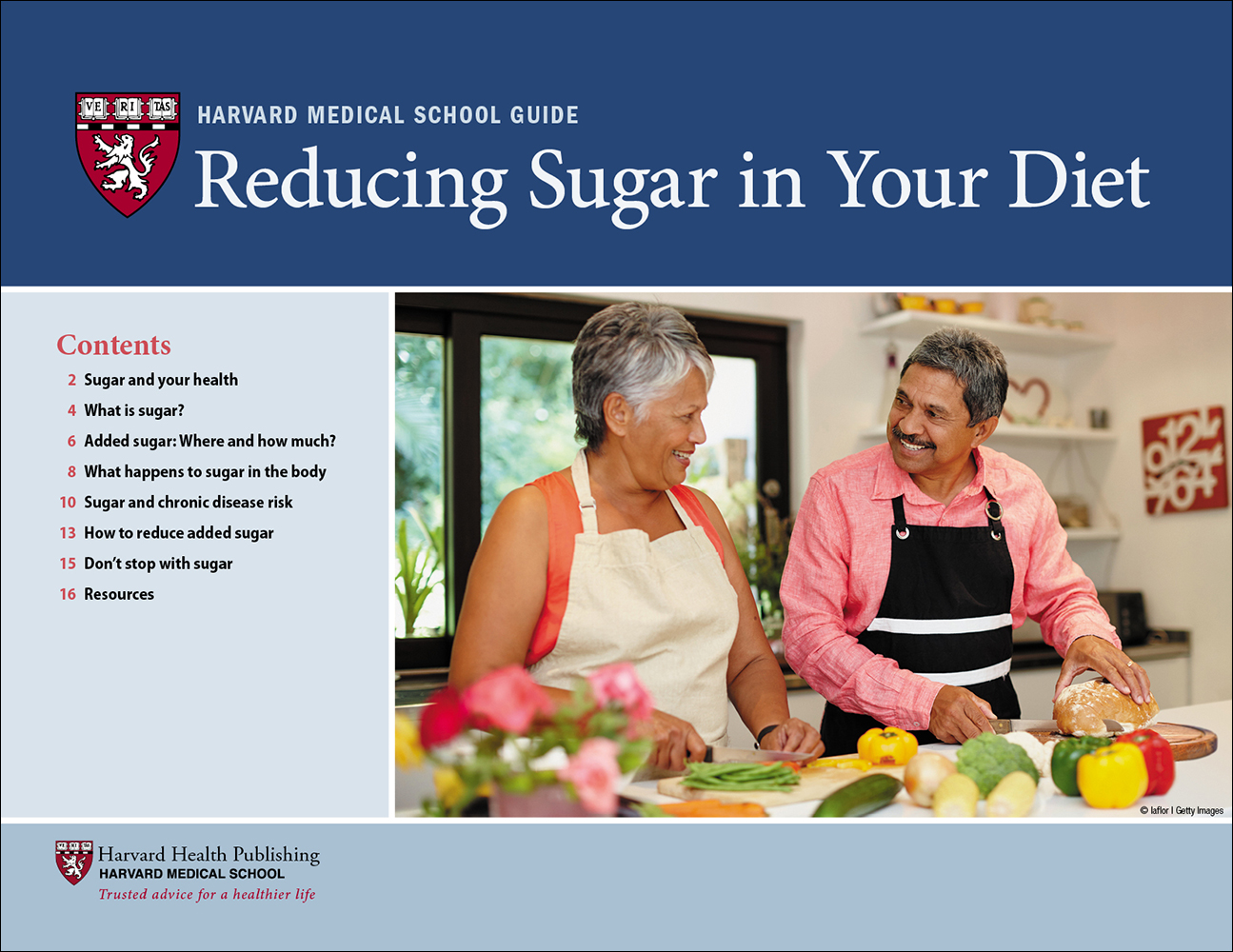Is sugar unhealthy?
It depends on the amount and the food source.
- Reviewed by Howard E. LeWine, MD, Chief Medical Editor, Harvard Health Publishing; Editorial Advisory Board Member, Harvard Health Publishing

Sugar has a complex relationship with health. On one hand, many healthy whole foods contain natural sugar. But the greater concern is the abundance of refined sugar often added to processed foods.
"Sugar is a carbohydrate that provides the body with energy, so it has an important role in nutrition," says Dr. Frank Sacks, a professor of cardiovascular disease prevention at Harvard's T.H. Chan School of Public Health. "The problem people have with sugar is they often consume too much of the wrong kind."
A tale of two sugars
A healthy way to think about sugar is to consider its source. Natural sugars are found in whole fruits, vegetables, milk products, and grains. Fruit and some vegetables contain forms of sugar called fructose, glucose, and sucrose, while milk contains lactose, and grains have maltose.
Consuming these kinds of whole foods is smart — current guidelines recommend you eat about two cups of fruit and two to three cups of vegetables per day, and six ounces of whole grains, like brown rice, oats, and quinoa.
"Whole fruits, vegetables, and grains also contain fiber, phytochemicals, antioxidants, and various vitamins and minerals you need for optimal health," says Dr. Sacks. "People need to eat more of these foods, not less, so don't shun them to curb sugar intake."
In comparison, refined sugar is what's added to food products to improve taste (which is why it's also known as "added" sugar). Refined sugar comes from cane, sugar beets, and corn, which are processed to isolate the sugar. Added refined sugars include sucrose (table sugar), glucose, and high-fructose corn syrup.
The top food sources of added refined sugar include soft drinks, fruit-flavored drinks, flavored yogurts, cereals, cookies, and cakes. But refined sugar is also found in most processed foods, including products you might not associate with sweetness, like soups, bread, cured meats, and ketchup.
Various health problems
When you eat a food that naturally contains sugar, your body digests that sugar slowly because whole fruits, vegetables, milk, and grains also have plenty of other components — particularly fiber and protein — that slow the digestion process. Foods high in refined sugar typically don't have as much of these helpful nutrients, so the body digests the sugars faster.
"This is why you often don't feel full after eating foods high in refined sugar, no matter how many calories you consume, and why people have a tendency to overeat processed foods," says Dr. Sacks.
A diet high in refined sugar is associated with numerous health issues. For example, multiple studies have linked consuming added sugar to a higher risk of obesity, diabetes, and unhealthy blood triglyceride levels.
A study by Harvard researchers found an association between a diet high in refined sugars and a greater risk of dying from cardiovascular disease. Over 15 years, people who got 17% to 21% of their calories from refined sugar had a 38% higher risk of dying from cardiovascular disease than those who consumed only 8% of their calories as refined sugar.
Another study, published online March 21, 2022, by Cell Metabolism, found that consuming excess refined sugar over a long time is linked to an increased risk of developing an autoimmune disease, such Crohn's disease, ulcerative colitis, or some kinds of thyroid disease.
How much is enough?
The Dietary Guidelines for Americans advise that all Americans limit refined sugars in their daily diet to less than 10% of total calories. The American Heart Association is more specific and suggests that men consume no more than 150 calories (about the amount found in 9 teaspoons of table sugar) from refined sugar per day.
Unfortunately, the average daily intake of refined sugar is the equivalent of about 17 teaspoons, providing 270 calories. Keeping track of numbers like this isn't easy. Dr. Sacks says a more straightforward approach to curbing your intake of refined sugar is to cut back (or cut out) the following food sources:
- regular soda
- juice drinks, like fruit punch and juice "cocktails"
- energy drinks
- sports drinks
- sweet tea
- sugared coffee drinks
- sweetened water.
Another strategy is to be savvier about reading food labels. "Checking products for the kinds of refined sugar and the amounts per serving can help you make healthier grocery selections," says Dr. Sacks. (See "Look closer at food labels.")
Also, keep tabs on the sugar you add to foods or beverages. One study found that about two-thirds of coffee drinkers and one-third of tea drinkers add sugar or sugary flavorings to their drinks, accounting for more than 60% of the beverages' calories. Try to use half the amount of your usual sugar or sweetener. (It doesn't take long for your taste buds to adjust to the change.)
But don't be overzealous about your sugar cutting, adds Dr. Sacks. "There's nothing wrong with enjoying a chocolate chip cookie or scoop of ice cream," he says. "But eat them in moderation — a cookie or two instead of a dozen or a single scoop of ice cream in a small bowl."
Look closer at food labelsAdded sugars are identified on a product's ingredient label. They often are called by names other than "sugar." Here are the ones you should look for, according to the federal Dietary Guidelines for Americans, 2015–2020:
|
Image: © Albina Gavrilovic/Getty Images
About the Author

Matthew Solan, Executive Editor, Harvard Men's Health Watch
About the Reviewer

Howard E. LeWine, MD, Chief Medical Editor, Harvard Health Publishing; Editorial Advisory Board Member, Harvard Health Publishing
Disclaimer:
As a service to our readers, Harvard Health Publishing provides access to our library of archived content. Please note the date of last review or update on all articles.
No content on this site, regardless of date, should ever be used as a substitute for direct medical advice from your doctor or other qualified clinician.
















